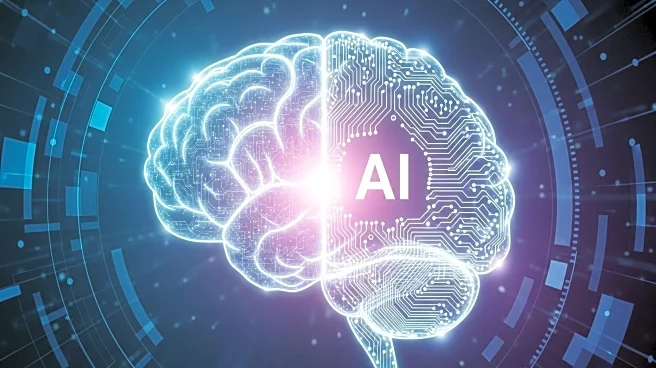What is the story about?
What's Happening?
The rapid advancement of AI technology is prompting educators and students to focus on developing uniquely human capacities that cannot be replicated by AI. Skills such as intuition, ethics, compassion, and storytelling are emphasized over technical skills like coding, which are increasingly automated. The shift is driven by the growing adoption of AI in workplaces and the changing expectations for AI-savvy job candidates. Colleges are encouraged to reallocate resources to nurture these human capacities alongside AI skills.
Why It's Important?
As AI continues to transform industries, the emphasis on uniquely human capacities is crucial for maintaining employability and personal growth. This approach aims to enhance the comparative advantage of humans over AI, fostering creativity, empathy, and ethical judgment. The focus on human capacities also addresses equity in education by catering to individual needs and promoting meaningful connections. The strategy supports a just transition in labor markets, ensuring that humans remain integral to the workforce.
What's Next?
Educational institutions may increasingly integrate mindfulness and behavioral science into curricula to develop human capacities. Policymakers and administrators are expected to engage in discussions to ensure equitable access to AI tools and support a balanced transition. The focus on human capacities may lead to new pedagogical approaches and career readiness programs that align with the evolving job market.
Beyond the Headlines
The development of uniquely human capacities may lead to broader societal shifts, emphasizing personal fulfillment and community resilience. The approach could redefine success in the workforce, prioritizing human connection and ethical engagement over technical proficiency. Long-term, this strategy may influence cultural values and educational standards, fostering a more holistic view of human potential.
















